News
Customize list
-

Why Small Differences in Materials Lead to Big Energy Savings?
Even small statistical variations in the magnetic properties of magnetocaloric materials have a major impact on the performance of future environmentally friendly cooling systems, researchers from the UL Faculty of Mechanical Engineering observe. These findings support the development of robust and reliable cooling devices and heat pumps that operate without harmful refrigerants.
-
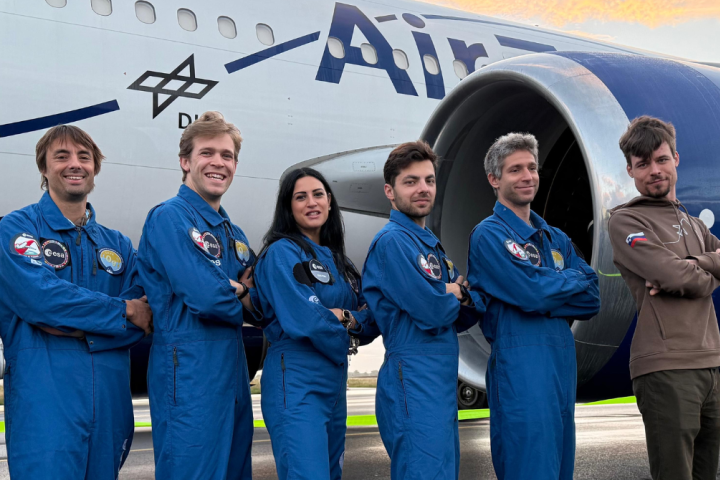
Slovenian Students Explore “Space Mayonnaise” in Microgravity
The CAVE 0g team from the University of Ljubljana studied the formation of emulsions in microgravity during the 87th parabolic flight campaign of the European Space Agency – a key step toward preparing food and medicine in space.
-

Prof. Dr Mitjan Kalin becomes the first European in two decades to receive the ASME Mayo D. Hersey Award
Prof. Dr Mitjan Kalin from the Faculty of Mechanical Engineering at the University of Ljubljana has become the first European in 20 years to receive the prestigious ASME Mayo D. Hersey Award – the highest academic honour in the field of tribology.
-
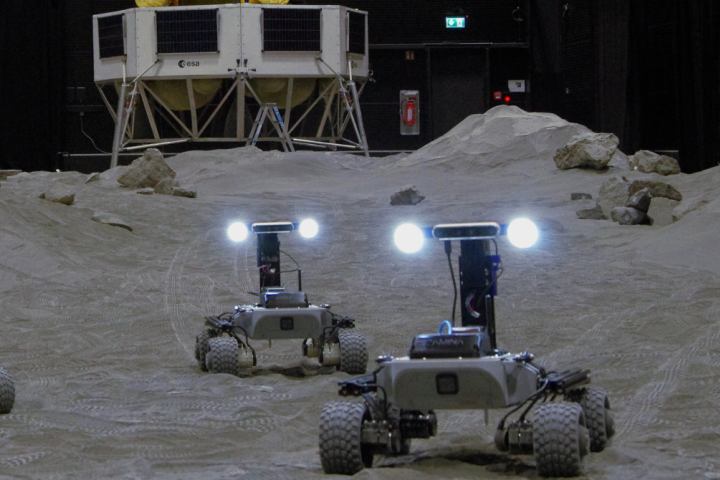
UL FS Develops Multi-Robot System for Lunar Surface Exploration
Researchers at the Faculty of Mechanical Engineering, University of Ljubljana, have developed an intelligent multi-robot system that could be used in the future for exploring the lunar surface. The system was successfully tested at the LUNA facility in Germany, which simulates lunar surface conditions.
-

Statement by the management of the University of Ljubljana on participation in European projects and remarks by the UN Special Rapporteur
The University of Ljubljana is following the situation in Gaza and the suffering of the population with great concern. As an academic institution founded on respect for human rights, we are firmly committed to strict adherence to international law. We express our deep sympathy for all those affected by the violence and the ongoing humanitarian crisis.
-
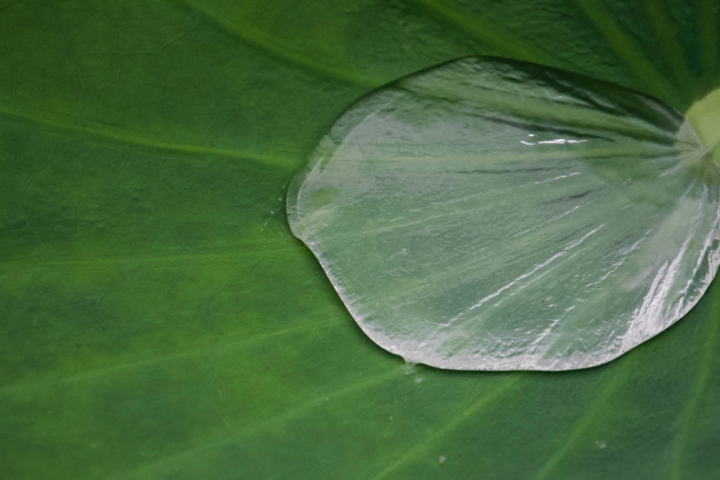
Can droplets reveal the pressure threshold of water-repellent surfaces?
Researchers from the Faculty of Mechanical Engineering at the University of Ljubljana developed a simple yet remarkably precise method that can determine, from a single drop of water, when superhydrophobic surfaces lose their water-repellent properties. This breakthrough will aid in the development of more durable water-repellent materials that can be used in industry, for example in cooling, self-cleaning, or corrosion protection.
-
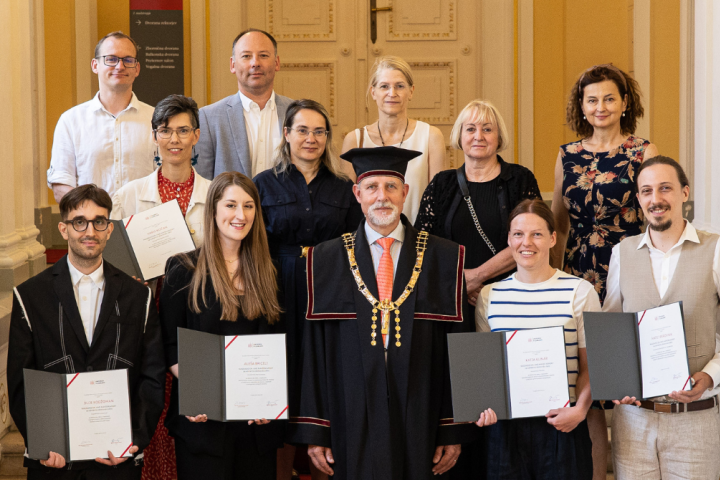
Dr Ana Mayer Kansky Awards bestowed for the third time at the UL
On Wednesday, 18 June 2025, the Dr Ana Mayer Kansky Awards for outstanding doctoral theses were awarded for the third time in the Assembly Hall at the Rector’s Office of the University of Ljubljana (UL). The awards were presented to Dr Matej Perovnik, Dr Faris Kočan, Dr Aleša Bricelj, Dr Duje Kodžoman, and Dr Katja Klinar. The award ceremony was held under the patronage of the President of the Republic of Slovenia, Nataša Pirc Musar.
-
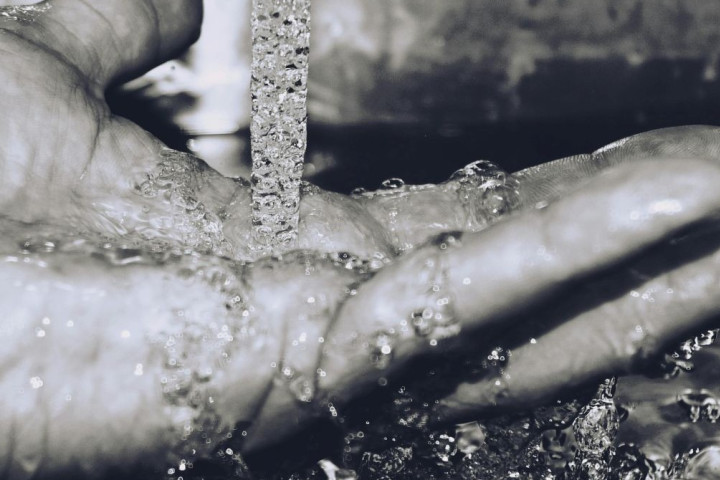
Microreactors of the Future for Efficient Wastewater Treatment Using Hydroxyl Radicals
The issue of wastewater treatment is becoming increasingly pressing in modern society, which is also reflected in the intensive research in this field. Conventional treatment methods are struggling to keep up with the growing diversity of pollutants that end up in various water bodies – both surface and groundwater. As a result, significant efforts are being invested in developing new technological approaches to address this challenge, with cavitation emerging as one of the promising technologies.
-

SpaceDent Exhibit Now Part of the Permanent Exhibition at the Noordung Center
The permanent exhibition of the Herman Potočnik Noordung Space Technology Center in Vitanje now features an exhibit from the SpaceDent research project – the first Slovenian student project conducted within the ESA Academy programme of the European Space Agency (ESA), in collaboration with the University of Ljubljana’s Faculty of Medicine and Faculty of Mechanical Engineering, where students successfully simulated dental procedures in microgravity during a parabolic flight.
-
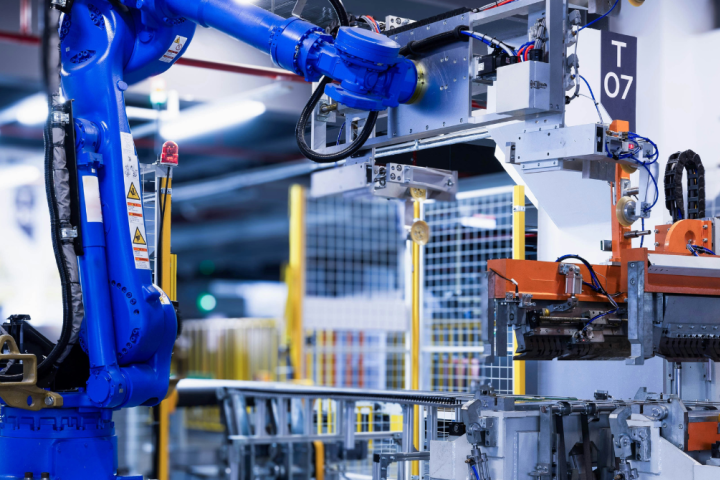
Revolution in manufacturing: Machine learning improves the precision of sheet metal stamping
Advancements in sheet metal stamping processes are creating new opportunities in industrial production. Researchers from the Faculty of Mechanical Engineering at the University of Ljubljana have developed an advanced method that uses machine learning to improve accuracy and reduce material waste.
-

Greentech: Hybrid Technologies for Factories of the Future and the Green Transition
A reduction of CO2 emissions by 17 million tons, energy savings of nearly 9 billion kWh, and a decrease in material consumption by approximately 800,000 tons over ten years. These are the expected outcomes of the groundbreaking Greentech program, which brings together 11 partners from academia and industry. The program is led by the Faculty of Mechanical Engineering at the University of Ljubljana.
-
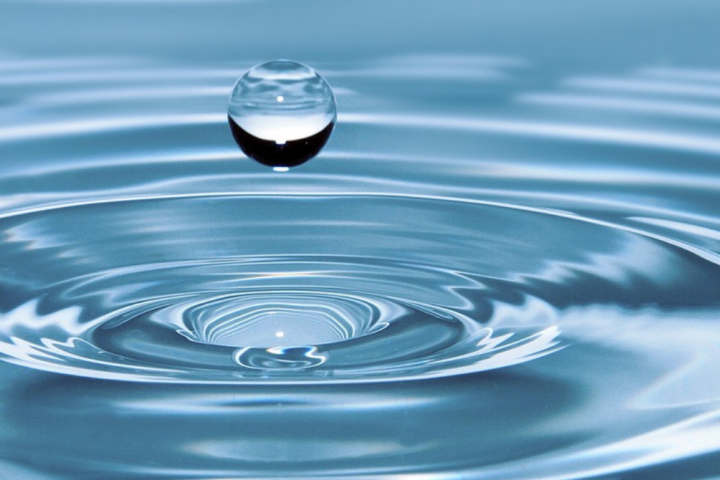
A completely new concept for harnessing waste heat and solar energy
Researchers from the Faculty of Mechanical Engineering at the University of Ljubljana, led by Assistant Professor Dr. Primož Poredoš, in collaboration with researchers from the ITEWA Innovation Team at Shanghai University, have developed a new concept for utilizing ultra-low temperature (waste) heat by simultaneously introducing solar energy and low-temperature heat into the system. They are the first in the world to present an entirely new concept for producing distilled water from saline, untreated water using thermally driven membrane distillation (MD).
-

National awards and prizes for University of Ljubljana scientists
The Ministry of Higher Education, Science and Innovation has announced the recipients of this year’s Zois and Puh awards and the Slovenian Ambassador of Science award. University of Ljubljana scientists are among the recipients.
-
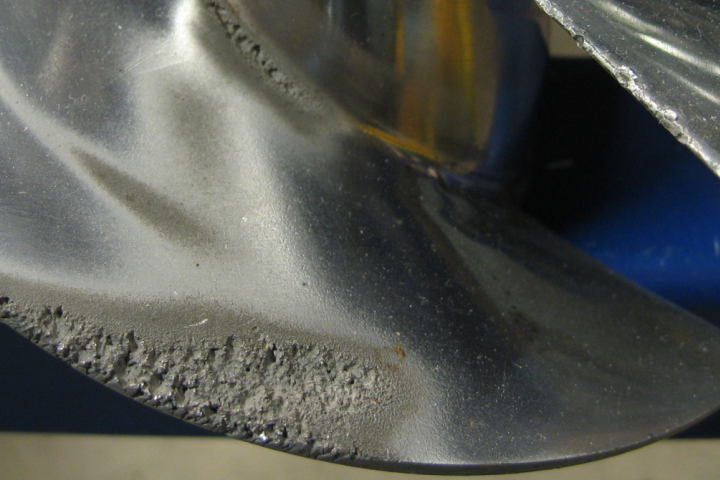
Questioning the standardized cavitation erosion test
Mechanical engineers often rely on standardized procedures when testing materials. Since the standardized cavitation erosion test ASTM G32 has repeatedly been shown to be inaccurate in the past, researchers at the Laboratory for Water and Turbine Machines (LVTS) at the Faculty of Mechanical Engineering, University of Ljubljana, have closely examined it and uncovered its shortcomings.
-

Improving the Quality of Life in Arid Areas with a System for Generating Electricity and Fresh Water
In parts of the world where water is increasingly scarce, it is crucial to establish effective and sustainable systems for energy and water supply. The interdisciplinary project PV-W2WFresh is changing the way we think about solar energy and water scarcity, aligning with the Sustainable Development Goals (SDG 6 and 7) by promoting clean energy and water availability in rural and underserved regions. This cutting-edge research combines concentrated photovoltaic (CPV) technology with an innovative evaporation desalination process, creating a system that not only generates electricity but also provides a continuous source of clean drinking water.
-
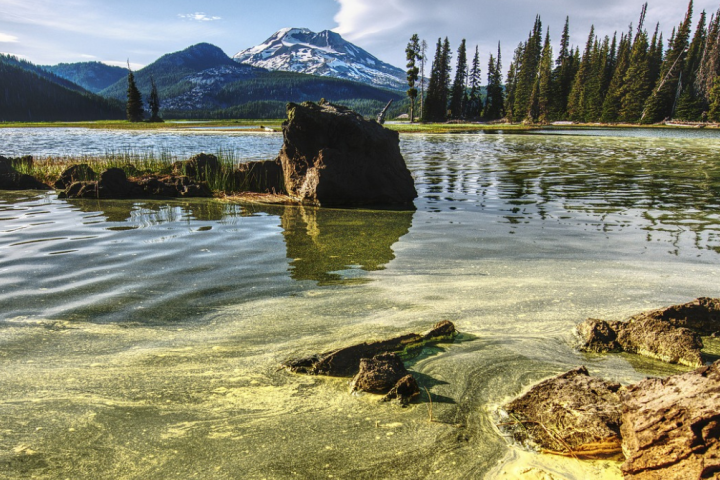
New methods for removing algae from drinking water
How to remove algae from drinking water? Since traditional methods, such as coagulation and sedimentation, are usually ineffective, Prof. Dr. Matevž Dular from the Laboratory for Water and Turbine Machines (LVTS) at the Faculty of Mechanical Engineering, together with colleagues from Yangzhou University, sought a solution in the use of ultrasound and advanced carbon-based materials.
-
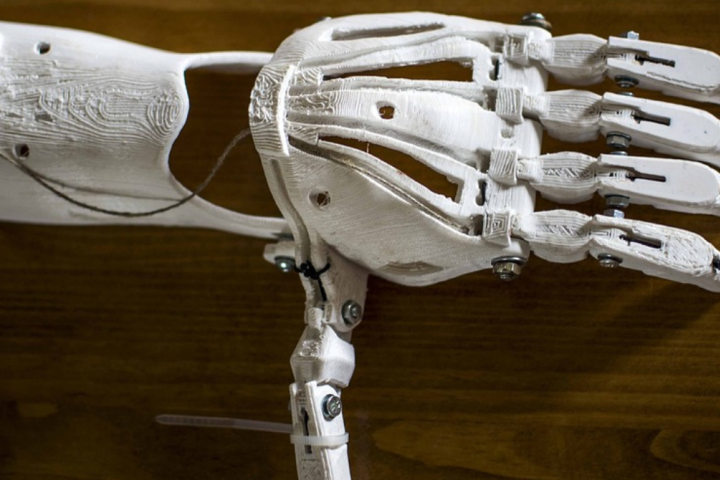
Comprehensive Overview of Plasma Electrolytic Polishing
Additive technologies are increasingly used for the production of metal components as they allow for efficient shape customization in a short time and with reduced material consumption. However, the lower surface quality of printed parts limits their direct industrial use. The growing demand for post-processing of metal parts produced by additive technologies highlights the potential of PeP technology as an environmentally friendly and efficient polishing method.
-
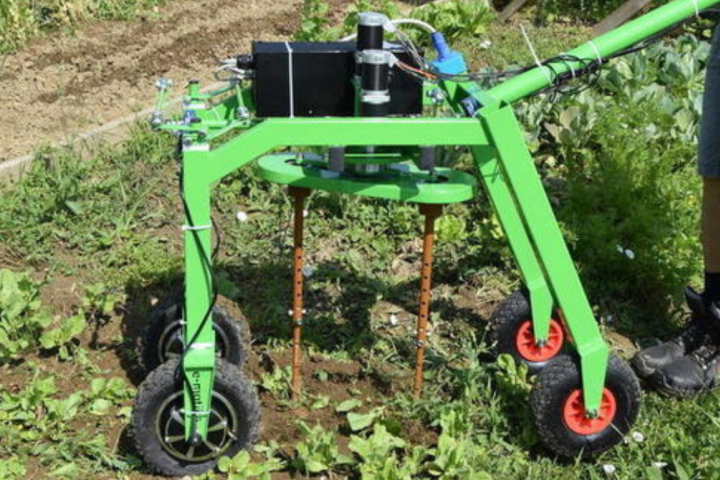
Sustainable Use of Soil with E-MOTIKA
Tillage machines are a necessity in agriculture, but they compact the soil and do not allow smaller farmers and growers to till and weed in an environmentally friendly and sustainable manner. Researchers from the Faculty of Mechanical Engineering of the University of Ljubljana, together with project partners on the Accelerated Vegetable Hoeing project - "MOTIKA," addressed this challenge by developing a hoeing machine specifically for smaller farmers and crop growers.
-
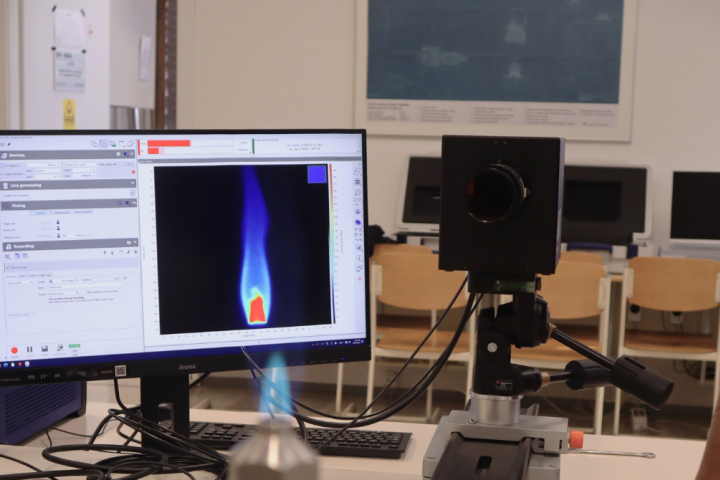
Faculty of Mechanical Engineering Successful in MSCA Doctoral Networks Call
The University of Ljubljana, Faculty of Mechanical Engineering, has been successful in the Horizon Europe Marie Skłodowska-Curie Actions (MSCA) Doctoral Networks call with the project UPCYCLE – Dissemination of Advanced Conversion Routes for Hard-to-Recycle Biogenic Waste. As part of the project, 15 doctoral candidates will be trained, three of whom will be based in Slovenia. The project is coordinated by Politecnico di Milano, with UL FS participating as a partner.
-
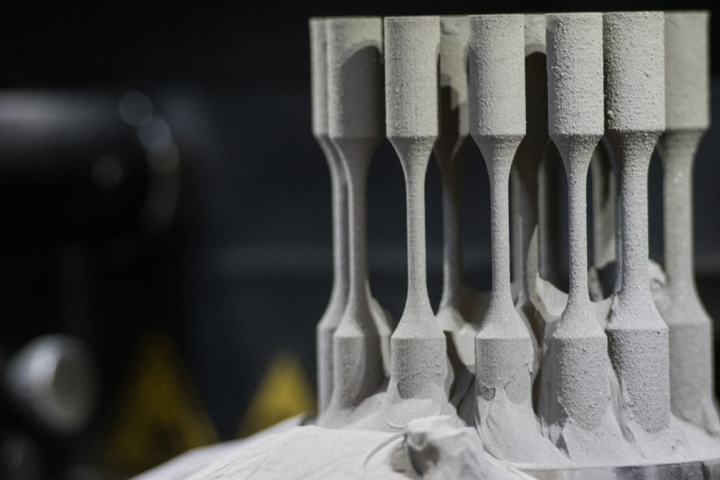
Artificial intelligence for predicting process condition variations in laser powder bed fusion of metals
Assistant professor Dominik Kozjek, a researcher in the Laboratory for Mechatronics, Production systems, and Automation (LAMPA) at the Faculty of Mechanical Engineering, UL, in cooperation with researchers from Northwestern University (Illinois, United States), the United States Army Research Laboratory, and the company DMG MORI Advanced Solutions, developed a new method of predicting meltpool temperature variations in the laser-powder bed fusion of metals (PBF-LB/M) process.
